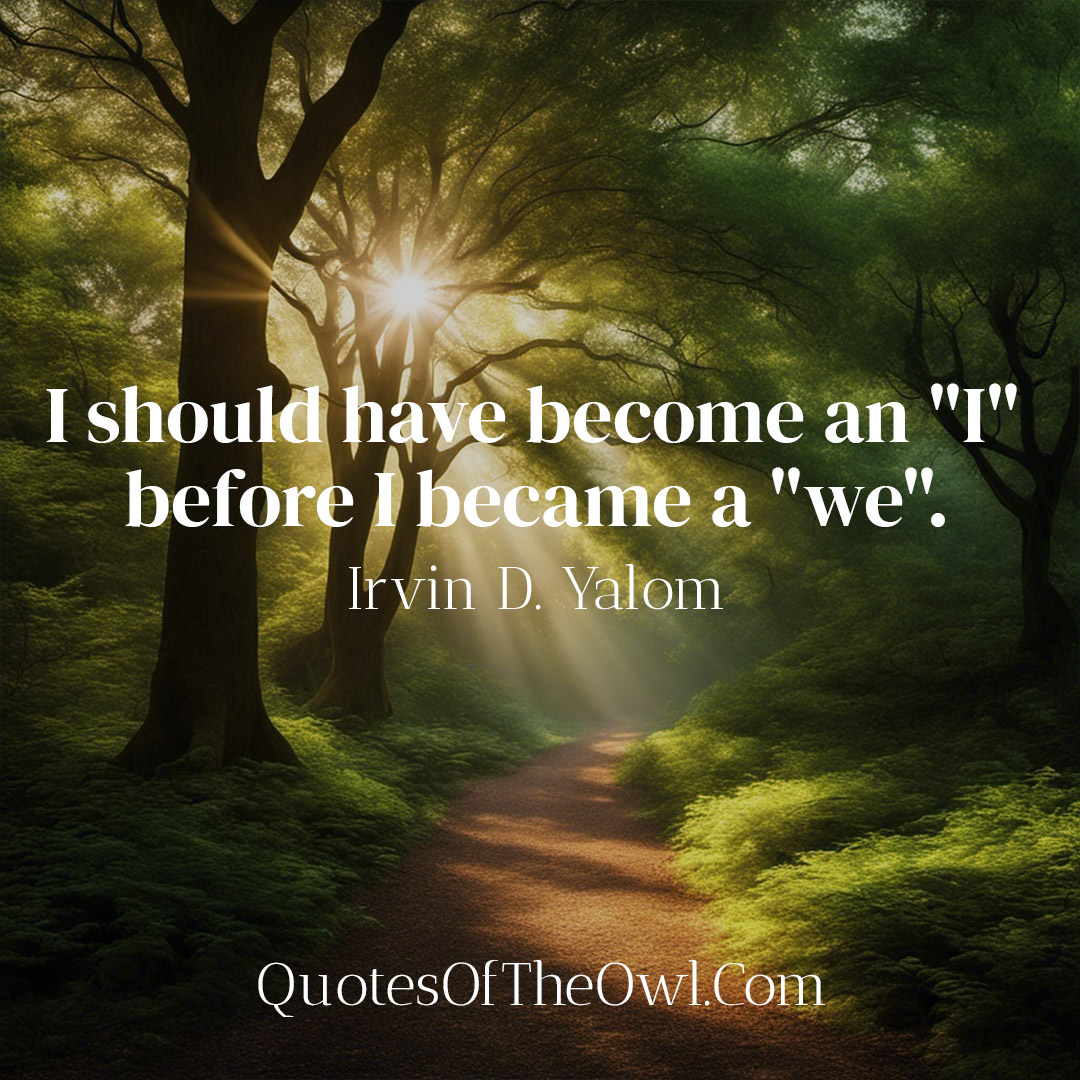I should have become an “I” before I became a “we” – Irvin Yalom
Irvin Yalom, a renowned psychiatrist and author, offers profound insights into human existence and the complexities of relationships. His quote, “I should have become an I before I became a we,” encapsulates the idea that one should develop their own sense of self before entering into relationships. Let us delve deeper into the meaning behind this thought-provoking statement.
Background on Irvin Yalom
Before we unravel the quote’s meaning, it is important to familiarize ourselves with the prominent figure behind it. Irvin Yalom is a well-respected psychiatrist, author, and professor emeritus at Stanford University. He has made significant contributions to the field of existential psychotherapy and has authored several influential books on the subject.
Understanding the quote
“I should have become an I before I became a we” is a powerful message that emphasizes the importance of self-discovery and individuality. It suggests that one should focus on developing their own identity before seeking validation or fulfillment through relationships.
The importance of self-identity
Self-identity plays a vital role in our overall well-being. It enables us to understand our values, beliefs, and desires independently of others. Only by knowing who we are as individuals can we make authentic connections with others.
Becoming an individual before forming relationships
Yalom’s quote encourages individuals to prioritize their personal growth and self-discovery before diving into relationships. By establishing a strong sense of self, we are better equipped to engage in healthier, balanced, and more fulfilling partnerships.
Balancing individuality and relationships
While individuality is crucial, it is equally important to strike a balance between maintaining one’s identity and nurturing a relationship. Finding this balance allows individuals to bring their whole selves to a partnership while also supporting their partner’s growth.
The impact of societal expectations
Society often pressures individuals to conform and prioritize coupledom over individual pursuits. This can lead to a loss of personal identity and hinder personal growth. Yalom’s quote challenges these societal expectations and urges individuals to prioritize their own self-identity.
Finding balance and self-discovery
Developing an appreciation for one’s individuality requires introspection and self-reflection. It involves exploring personal interests, values, and aspirations. By investing time and energy into self-discovery, individuals can foster a deeper understanding of themselves and their desires.
Self-reflection and growth
Embracing Yalom’s message encourages introspection and self-reflection, leading to personal growth and development. By understanding ourselves better, we can navigate relationships with increased self-awareness, empathy, and authenticity.
Challenging the status quo
Yalom’s quote challenges the traditional narrative that emphasizes finding fulfillment solely through romantic relationships or societal expectations. It calls for individuals to challenge the status quo and prioritize self-discovery before seeking validation from others.
Embracing individuality
By embracing our individuality, we become more confident in our own skin. Embracing our quirks, strengths, and weaknesses allows us to flourish as unique individuals, embracing authenticity, and enhancing our personal satisfaction.
The benefits of self-identity
Developing a strong sense of self-identity brings numerous benefits. It empowers individuals to make decisions aligned with their values, seek compatible partners, and foster healthier relationships built on mutual respect and admiration.
Achieving personal fulfillment
Investing in personal growth and self-identity ultimately leads to increased personal fulfillment. When individuals prioritize their own development, they experience a greater sense of purpose, contentment, and satisfaction in their lives.
The impact on relationships
Building a solid foundation of self-identity positively impacts relationships. When individuals are secure in their own sense of self, they bring authenticity, honesty, and emotional stability to their partnerships, fostering healthier dynamics and deeper connections.

